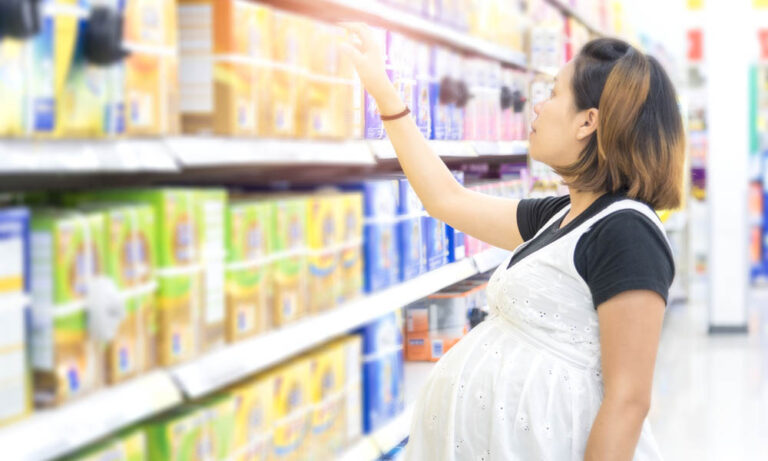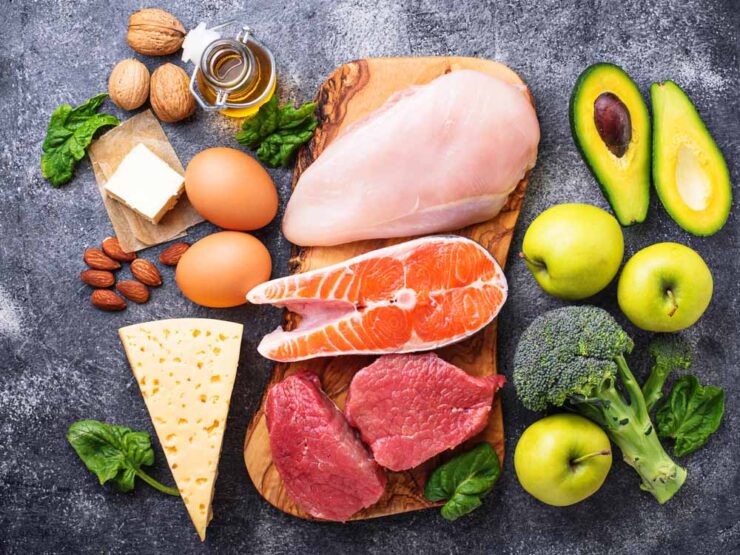When children are born, they are usually very delicate, therefore the need for the right amount of nutrients to help them grow healthily is important. Choosing the right formula for your baby can prove to be a tough decision to make, as baby formulas come in different forms.
Any mother who is breastfeeding will find that supplementing breast milk with infant formula is the ideal alternative when the time comes for them to go back to work or leave the baby under another person’s care. Professional advisors recommend mothers to breastfeed their babies up to six months nonstop.
When choosing infant formula, meeting the right quality standards and nutritional needs for the baby is key. Below are the 10 most important things to consider when buying baby formula.
10 Things to Consider When Buying Baby Formula
1. Nutritional Content
The nutritional content for the first six months of a baby’s life should be carefully administered.
- Protein Content
Intake of excessive protein for an infant could contribute to obesity. Baby formulas have different protein content; some are usually much higher than others. 10 Grams of protein per day is the right amount for infants aged between 0-6 months. Ensure that you look at the packaging for the protein content and choose a formula that has the according protein count per 100 ml.
- Carbohydrates
Carbohydrates are the main energy source for each and every infant because they are essential for proper growth and development. Giving the right amounts of carbohydrates will help to maintain a healthy body weight and offer the most favorable growth for the infant. 95 Grams of carbohydrates per day is enough for the baby.
2. Forms
As mentioned earlier, baby formula comes in different forms. There are a number of different brands that are officially authorized and meet the required standards. Baby formula comes in two forms; ready to use formulas and powders.
- Ready to Use Formula
The ready to use formulas are highly recommended for newborns. You can buy the best formula for breastfed babies, but if it is too early, it might cause problems. This is because they are easy to digest and are usually made out of cow’s milk. They are also recommended because you can continue giving this type of formula to your baby after you introduce solid foods. However, if a particular brand disagrees with your baby’s digestion, you can always try another one.
- Powders
These type of formula is in powder form and comes in little packets and requires to be mixed with water before you can feed the baby. Though it is considered economical, this type of formula is not recommended for infants under 6 months unless it has been prescribed by a doctor. Soya based formula, which are available on the market, too, are usually given to babies who are allergic to cow’s milk.
3. Financial Status
It is important to consider your financial capability before deciding the type of baby formula you want for your baby. The most economical type of formula is the homemade baby formula. If you are not in a position to purchase baby formulas from the shop, a healthy well nourished homemade baby formula can fill that void.
4. Child’s Birth Weight
Some children are usually born with low birth weight which is mostly less than 2.5 kilograms at birth. In most cases this happens with twins or premature babies. A nutritious diet can help your child grow steadily and choosing nutrient enriched formulas will be of much help to the baby’s health. However, always be cautious with formula as it may lead to obesity if given in excessive amounts.
5. Ingredients Included in the Formula
There are 2 major controversial ingredients that can be found in baby formula. DHA (Omega-3) and ARA (Omega-6) are ingredients that are considered the best kinds of fatty acids for infants. These two ingredients are known for brain and nerve development. Naturally DHA and ARA are found in breast milk, fish oils and eggs. However, added DHA and ARA is usually processed with the toxic hexane. Manufacturers claim that only small amounts can be found in the formula, however, you should think about whether or not you want to feed it to your baby.
6. The Baby’s Age
This factor is usually overlooked by many mothers. It is important to consider a baby formula that will fit your baby according to his/her age. It is advisable to introduce ready to use formulas to infants less than 6 months old. Whether the baby is fully formula fed or mixed fed, you need to use the right breast milk substitute until 12 months of age. Infants of up to 6 months usually use the same type of baby formula which contains 10 grams of proteins and 95 grams of carbohydrates every day. From 6-12 months you can use a higher amount of proteins and carbohydrates too.
7. Understanding the Label
Manufacturers and sellers are keen on making new products for baby formulas, because they want to make profit. There might appear formulas in the market, which seem to be an improvement to the previous products, but more than often the ingredients are usually the same or just slightly altered.
8. Allergies
Allergies are known to be genetic; therefore your baby is most likely to have the same allergies that came up in your family before. In such cases doctors advice hydrolyzed formula which is easy to digest and less likely to give your baby an allergic reaction.
9. Iron Fortified
This applies to babies who are not breastfed at all because of various reasons best known to the mother. All babies who are not breastfed should get formulas with iron until they are one year old because it helps boost iron levels in their blood thus preventing anemia.
10. Availability
It is not advisable to keep on using different types of baby formula; therefore sticking to a specific one is advisable. Changing baby formula might interfere with the baby’s digestion and can cause allergies.
After choosing the best formula for your baby, make sure you maintain high standards of hygiene, which includes washing your hands before handling your baby’s formula. The feeding bottle should be rinsed with hot water before mixing powder or liquid concentrates for baby’s formulas.



